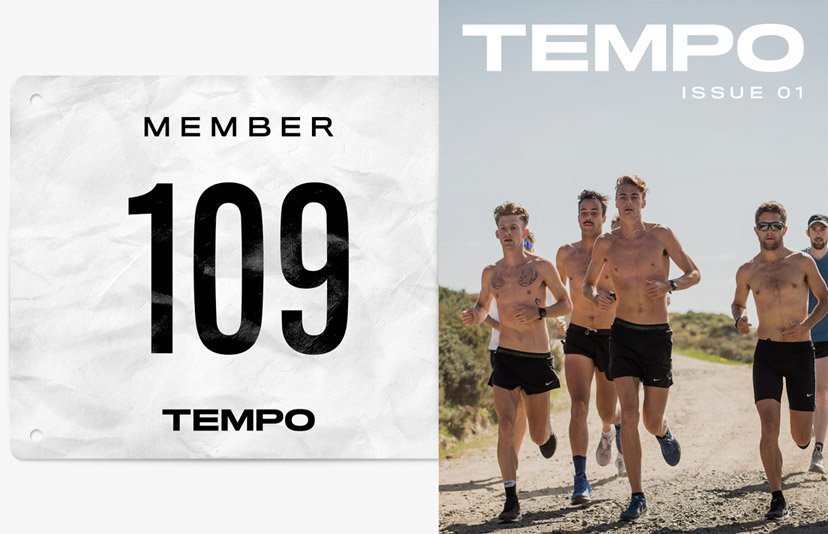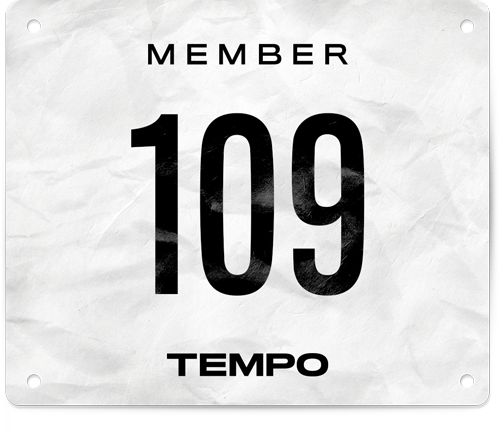Performance
Building High-performance Culture: Part Two
A Melbourne Track Club origin story
The Melbourne Track Club is a case study in high-performance culture. Riding out his hotel quarantine after returning from the Tokyo Olympics, MTC founder Nic Bideau took time out to reflect on the club’s history and evolution. Seven key themes emerged that speak to the club’s culture. I introduced the first of these, ‘putting the athlete first’, in the first part of my wide-ranging chat with Nic. We pick up the conversation below.
Ritualistic simplicity
Simplicity is not likely the first word that comes to mind when you think of high performance, which is often an idea steeped in detail and cutting-edge practices. But Nic’s take on it is certainly one of simplicity. Training is ritualistic in its timing. Always at 9:30am and 5:30pm. It is more art than science. It involves a healthy amount of mileage and includes plenty of work around the lactate threshold as well as sprinkles of well-timed intensity that could humble even the likes of Stewy McSweyn. Training camps are usually fairly spartan, and they’re certainly free of distractions – they’re often held on mountains with no surrounding town to speak of.
This simplicity replaces a preoccupation with metrics. Rather than running the numbers, Nic spends time with his athletes, fostering confidence, bravery and self-efficacy. “It’s not any one thing, it’s a hundred little things. Lots of conversations. Lots of observation. Trying to work out how people can improve. How can we make them into better competitors, better at producing their very best effort when it really counts?” There is a nuanced timing to the conversations he has with each of his athletes. He is a man of few words. But, like everything Nic does, there is an art to it.
And that art has never changed.
What has changed, though, is the role of the team.
“In the world of elite athletic-meet organisation, Nic’s honesty and brashness is appreciated. So is his hustle.”
Dave McNeill
Building identity through team culture
As Nic assembled a team of training partners around Craig and Benita, those athletes started to run well themselves. The environment Nic had built for his stars was turning into a culture all its own. High performance was no longer just an environment and an ensemble of services. It was a lifestyle. It was all-consuming, and so it inevitably formed part of each team member’s identity. A common ground to connect over, and a shared struggle. A cultural revolution was underway.
“It’s one thing to get those really talented athletes to run well. But, after 20-plus years in this caper, I back myself to get most athletes to improve. And a big part of it is the training environment we have established. Everyone in the group plays a part. They are invested in trying to help each other become the best they can be.”
From the outside looking in, there have been many stars at MTC since Cathy Freeman, Craig Mottram and Benita Willis came through. But the dynamic has very much shifted from that of a star and their entourage to that of a team.
The power of the shared struggle
In many ways, the culture Nic has orchestrated at MTC is nuanced and hard to articulate in words. But one of the clearest depictions of it at work comes on a typical Tuesday at the track. Nic coaches many athletes all competing for the same few spots on Australian teams. It would be easy to imagine ego occasionally dictating how fast a rep is, and who leads it. And yet it never happens. That shared struggle is real, and it’s something that creates a bond. There is a sense of identity intimately tied to that team bond, which is far greater than the individual ego. Trains of runners make their way around the track, sharing the lead every few laps. The only way to get through these sessions is together. They are hard.
The success of each individual is a product of how well the team works together. And athletes know that. Nic rarely has anything to say on the matter. Culture speaks for itself at MTC. The most you’ll hear from Nic on a Tuesday is if a new person plays the last-rep hero and is the recipient of a few choice words from him at the end. It’s rarely a repeatable offence.
Thoughtful words
Nic is a man of few words at the best of times. You won’t see him in the ears of his athletes before a race. And you won’t see much emotion after a race. He is a quiet leader who, these days, shares words with his athletes sparingly and thoughtfully. Brendan Foster, an Olympic medalist and founder of the Great North Run, remains a trusted source of wisdom for Bideau. To hear Nic speak of Brendan and the respect he has for him is a great insight into his own considered approach to speaking and teaching. Nic talks of Brendan’s logic and common sense, and his capacity to zoom out from, and then zoom in on, problems. Nic will spend many of his morning walks doing just that: zooming out and then zooming in, contemplating the conversations he has to have. His words are always poignant and meaningful, even if they’re sometimes brash and confronting. When Nic speaks, you listen. One need only consider the minds he has tapped into over 25 years in the sport to be captivated.
Nic is infamous for occasionally having choice words with his athletes. The majority of the time, these choice words have led to growth and, for some, have represented pivotal turning points in their careers. But there have been well-publicised breakdowns in communication too. Nic hasn’t always nailed the tone and timing of his words. Calling things how they are – brashly and confidently – isn’t always the best way. He is human, and he is self-aware. He’s tuned into that in recent years.
Building leaders
These days, Nic will occasionally rely on senior members of the group to connect and communicate with teammates when they need guidance. Sometimes the message is only as effective as the messenger, and Nic has recognised at times that he doesn’t always fit the bill.
Bideau learnt to rely on senior group members when Sonia first began training around Craig and Benita. “One of the systems I’ve always had is, rather than me ramming things down people’s throats, [to] put the best athletes with the ones needing development. I’ve seen attitudes change when I pair these athletes up.” The legacy continued when a young Ryan Gregson joined the group 12 years ago and the more-seasoned Collis Birmingham played a mentoring role for him. It continues today, but Nic has expanded the process to not only lead by example but also to have senior athletes engage in conversations with developing athletes, where a more delicate tone is needed than he can sometimes offer. “I just don’t think I could have had some of the breakthroughs if I didn’t have someone around who was an example.”
Still, words – and a team of athletes invested in each other – aren’t the only drivers for excellence. Nic is a creator of opportunities. And opportunity can be a far greater teacher than words alone.
Show them, don’t tell them
Nic’s capacity to get athletes on prestigious starting lines is unrivalled. That’s because few agents on the world stage of athletics can create opportunities like Nic can. It’s a product of the connections and relationships he has developed over a lifetime. In the world of elite athletic-meet organisation, Nic’s honesty and brashness is appreciated. So is his hustle.
Nic is in the business of supporting lofty goals. And lofty goals require hustle, and a lofty swing. Not everyone who comes through MTC hits it out of the park but Nic always gives people the opportunity. Many times, that opportunity is enough to show them what it takes at the highest level of athletics. Racing on the world stage can be brutal. The effort and reward don’t always line up, and Nic knows there are no words for that. Better to show it than say it, sometimes. Resolve must be harnessed through experience.
Where Nic has the most success is with the athletes whose resolve can be harnessed – those resilient enough to stand up to the brutality of racing the best in the world. They become the leaders and drivers of high-performance culture at MTC. It’s become a self-sustaining model tested and improved over many years.
And that’s exactly what Nic was smiling at around that quiet Olympic Village living-room table in Tokyo. A group of athletes whose diverse experiences would fuel another trip around the sun. Nic is spending more time nowadays asking not “what does this athlete need?” but “what does this sport need?” His unashamed honesty and brashness makes this a mammoth task at times. It’s probably why he’s developed the hustle he has, and why he’s had the success that he has.
The absence of fanfare on that last night of the Tokyo Olympics – a few athletes sinking beers together in a mostly empty apartment building – is Nic and MTC to a tee. Perhaps it’s unintentional, and it’s no doubt meant well, but there is an element of insecurity that accompanies fanfare. A desire to be seen and heard. A call for validation and acknowledgement. It is not wrong. Celebration is important. But fanfare is quite obviously missing from Nic’s approach and philosophy. He loves what he does and is proud of what he has built. Fanfare does not serve Bideau. He’s quietly proud just seeing his charges grow and succeed. For Nic, it’s enough.


